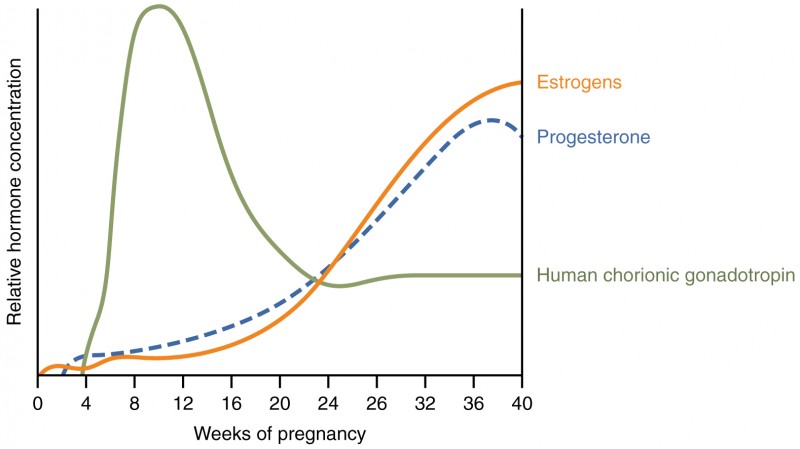
Progesterone Surges in Early Pregnancy: A Comprehensive Overview
Introduction
Progesterone, a hormone produced by the corpus luteum in the ovaries, plays a crucial role in maintaining a healthy pregnancy. Its levels undergo significant fluctuations throughout the menstrual cycle, with a particularly notable surge during early pregnancy. This surge is essential for preparing the uterus for implantation and sustaining the developing embryo.
Role of Progesterone in Early Pregnancy
Progesterone exerts a multitude of effects on the female reproductive system during early pregnancy:
- Uterine Receptivity: Progesterone promotes the development of a receptive uterine lining, creating a favorable environment for embryo implantation. It stimulates the growth of endometrial glands and blood vessels, increasing the uterine blood supply and nutrient availability.
- Cervical Mucus Changes: Progesterone thickens cervical mucus, forming a protective barrier that prevents the entry of pathogens into the uterus. This thick mucus also serves as a physical barrier to sperm, reducing the risk of fertilization.
- Inhibition of Uterine Contractions: Progesterone relaxes the uterine muscles, inhibiting premature contractions that could disrupt implantation or harm the developing embryo.
- Immunomodulation: Progesterone modulates the immune system to prevent the rejection of the embryo. It suppresses the activity of certain immune cells that could attack the embryo and promotes the development of immune tolerance.
Progesterone Surge in Early Pregnancy
The progesterone surge in early pregnancy occurs around the time of implantation, typically between 6-12 days after ovulation. This surge is triggered by the release of human chorionic gonadotropin (hCG) from the developing embryo. hCG stimulates the corpus luteum to produce increased amounts of progesterone.
The progesterone surge typically lasts for several weeks, until the placenta takes over progesterone production. By this time, the embryo has implanted and the pregnancy is well-established.
Clinical Significance of Progesterone Surges
Measuring progesterone levels can be useful in assessing the health of a pregnancy:
- Confirmation of Pregnancy: Elevated progesterone levels can confirm a pregnancy in the early stages, even before a missed period.
- Monitoring Pregnancy Progression: Serial progesterone measurements can track the progress of a pregnancy and identify potential problems, such as a threatened miscarriage or ectopic pregnancy.
- Treatment for Infertility: Progesterone supplements may be used to support pregnancies in women with low progesterone levels or a history of recurrent miscarriages.
Factors Affecting Progesterone Surges
Several factors can influence the magnitude and timing of progesterone surges in early pregnancy:
- Ovulation Timing: The timing of ovulation affects the timing of the progesterone surge. Early ovulation leads to an earlier surge, while late ovulation results in a later surge.
- Corpus Luteum Function: The health and function of the corpus luteum determine the amount of progesterone produced. A corpus luteum that is not functioning properly may produce insufficient progesterone.
- Embryo Quality: A healthy embryo produces more hCG, which stimulates a stronger progesterone surge.
- Maternal Health: Certain medical conditions, such as thyroid disorders or adrenal gland problems, can affect progesterone production.
Conclusion
Progesterone surges in early pregnancy are essential for creating a favorable environment for implantation and maintaining a healthy pregnancy. Measuring progesterone levels can provide valuable information about the health and progression of a pregnancy. Understanding the role of progesterone and its fluctuations is crucial for healthcare providers and individuals seeking to optimize their reproductive health.